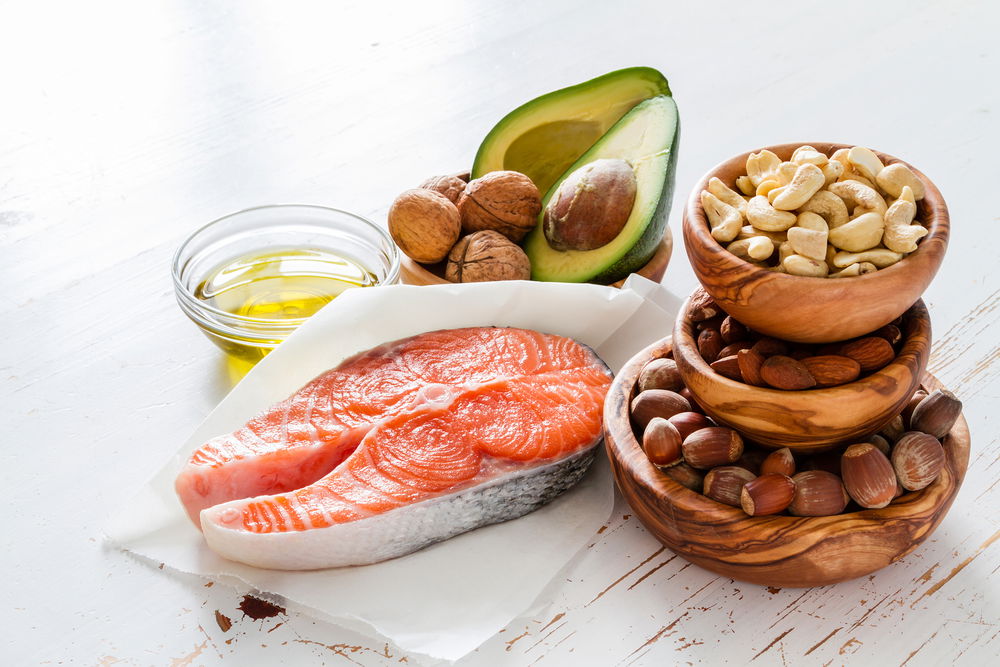 11 Best Ways to Improve Digestion Naturally
11 Best Ways to Improve Digestion Naturally

No matter how healthy we are, we can all have the occasional bout of digestive issues. These can range from constipation, nausea, heartburn, gas, or diarrhea. But the more frequently these problems happen, the more you can feel like digestion is becoming an interference in your life. If you are having issues like this on a recurring and daily basis, then it might be time to take steps to improve your digestive system. Here are 11 best ways to improve digestion naturally.

Eat Whole Foods
The modern diet in Western culture is full of ingredients that do major damage to our digestive system. Refined carbs, food additives, high levels of salt, chemicals and saturated fats all contribute to the development of digestive disorders. These issues can range from gut inflammation to a serious condition known as leaky gut, as well as a plethora of issues. Eating more whole foods and less processed foods can protect the gut and strengthen the gut’s good bacteria.

Eat More Fiber
Fiber is one of the best things you can eat for your gut health. This entails eating both soluble fiber, which absorbs water and bulks stool — and insoluble fiber, which keeps the digestive tract moving properly. Soluble fiber are foods like nuts, seeds, legumes, and oat bran — and insoluble fiber includes things like vegetables and whole grains.

Eat More Healthy Fats
You may think fats are bad, but they are actually a necessity for healthy digestion and proper absorption of nutrients. Specifically, omega-3 fatty acids help to prevent gut and bowel inflammation, and can be found in foods like salmon, chia seeds, and nuts.

Drink Enough Water
This may seem like a broken record, but hydration is key to every system in your body, including the digestive system. Studies show that at least 50-66 ounces of water are needs, if not more. You can increase your water intake by eating foods like zucchini, celery, watermelon, and cucumber.

Reduce Your Stress Levels
Stress can ruin a lot of things, and your digestive system is one of them. Stress hormones impact your digestive system — when you are in flight or fight mode, you don’t have the calm disposition to rest or properly digest food. And the direct connection between the brain and gut make reducing stress even more important.

Eat Mindfully
If you are always in a rush while eating, you could make a huge improvement by just slowing down during meal time. Eating too fast leads to gas, bloating, and indigestion. Take time to eat mindfully by slowing down, and fully smelling and tasting your food.

Chew Your Food Well
The first step in digestion starts with your mouth. If you are not properly chewing your food into smaller pieces, it is not prepared properly for your digestive enzymes to break it down.

Move Your Body
Exercise is another way to improve digestion. Moving helps increase your food transit time — and the less time food sits in your digestive organs, the less time it has to ferment and negatively impact your gut.

Listen to Your Body
By slowing down while eating, you can actually listen to what your gut is trying to tell you. Studies show that the brain does not realize it is full until 20 minutes after. Anxious eating has been shown to negatively impact the gut.

Cut out Bad Habits
As with many things in the body, other habits can impact your digestive system. Smoking can almost double the risk of developing digestive problems like acid reflux. Smoking has also been shown to potentially cause stomach ulcers, ulcerative colitis, and gastrointestinal cancer. Drinking alcohol is also linked to heartburn, stomach ulcers, and acid reflux. Excessive alcohol consumption can also contribute to leaky gut and damage good gut bacteria.

Try Gut Specific Nutrients
There are all sorts of supplements and foods you can eat to specifically support the gut. Probiotics are good bacteria that improve digestion. Fermented foods like yogurt, miso and kimchi are other foods that contain probiotics to help support the gut. Glutamine is another supplement to incorporate that can help reduce intestinal permeability, or leaky gut. Zinc also helps to improve gut health, as a deficiency can cause digestive disorders too.